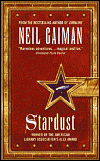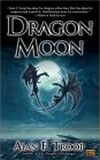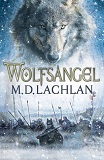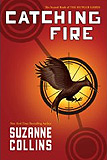
Stardust, by Neil Gaiman
Book Review by James Michael White
Have you read this book?
Confound it all. Neil Gaiman can disappoint me with a critically acclaimed book like American Gods and make me think that his writing is just as variable as the moon, then have in his repertoire a little, and excellent, book like Stardust. Which merely makes me wonder why he doesn't write so well all the time.
At some 248 pages, and around the neighborhood of some 60,000 or so words, it stands in stark contrast to the much longer American Gods by proving that longer isn't necessarily better. Whereas American Gods comes off as slushy storytelling, Stardust is trim and solid, with nary a hint of wasted movement. Which may, quite simply, indicate that the best stories are only as long as they need to be.
And just what is it all about?
Well, there's this town of Wall in England, and on one side of it there's this wall with a hole in it that leads to faerie land, and every nine years there's a big market there where the inhabitants of faerie and the inhabitants of Wall and all the rest of the world, can mingle and share and sell their wares.
One day in about 1837, young Dunstan Thorn attends the market on the other side of that wall to buy a gift for his sweetie from an old gypsy lady, but there meets a young and enchanting servant girl bound by a silver chain. It is from this meeting (though not only from this one) that a nicely interlaced series of events springs, having to do with why the servant girl is chained, who she really is, the terms of her release, and how a boy not yet born, and a promise not yet made, will save the daughter of the moon and restore a decayed kingdom. All of these things are the result of a plot engine evinced in the words of the girl who, when asked by Dunstan if she will be a slave forever, says:
"Not forever," and at that the faery girl smiled. "I gain my freedom on the day the moon loses her daughter, if that occurs in a week when two Mondays come together. I await it with patience. And in the meantime I do as I am bid, and also I dream. Will you by a flower from now, young master?"
If you think that he does, boy are you right. And, as they say, things are never the same afterward.
Afterward, for instance, there is an immediate and unexpected shift of who we initially take to be the main character, but it works well and quickly and sensibly, just as, later, there is likewise a shift in potential climaxes when anticipated battles don't work out quite the way we think they will.
Ah, but to a purpose do these things happen, and the purpose builds interest.
Except, at last, when the narrative chips fall where they finally must. And here arises a glimmer of my continuing criticism of Gaiman's work - occurring this time at a different point than in other stories, and it is this: his endings usually fall flat. The good news is that this one doesn't. This one soars in the moon-brighted night and flies away on the wings of lyrical romanticism.
No, the flatness here occurs in the great and greatly-anticipated confrontation with the villain who has so bedeviled and sought to doom our heroes. This confrontation is, in its own way, as shrunken and grayed and powerless as the witch queen whose actions and conniving have suggested all kinds of ways around such frailties, and anything but impotence.
That Gaiman doesn't throw villain against heroes in a moment of stupendous conflict near the end isn't precisely a weakness, then, but rather a demanding storytelling and point-making choice, especially since it may be said that this choice says much about how the follies and desires of youth may be replaced by the objective realities and necessities of old age - except it doesn't quite come off that way. The suggestion is clearly there, but not quite all the architecture.
In other words, the big battle we've waited for, turned pages in grim expectation of, tried to anticipate in many ways based upon the cutthroat nature of earlier ones, arrives in a peripetia-like switcheroo to something kinder, gentler, and far more contemplative than earlier tiffs have suggested. Thus its demand upon readers to see through the seeming dodge, no matter what it does to the emotional pitch.
Still, this remains a minor quibble. Many have apparently enjoyed the climax just as it is - this was, once, a national bestseller, after all - and still others like myself are left wanting more without precisely knowing what (kind of like having a shiny silver coin pressed into hand but asking instead for the moon), all the while fully realizing that what's there is perfectly justifiable.
In the end, Stardust is a fairy tale told with a lightness of touch that befits its seeming familiarity, a lightness throwing into all-the-sharper-contrast moments of bloody violence that remind us that this is no mere child's tale, after all, while at the same time proving how high its stakes, and the interests of its villains, really are. To succeed so well and in so many ways clearly overshadows any second-guessing about what remains its less than pivotal parts, especially when those parts, too, have a purpose functioning well beyond merely incendiary bravura. There are lessons here, after all, and not all of them arrive at knife or sword-point. Nor should they.
Stardust is a fine work that deserves to be read, and remembered.
At some 248 pages, and around the neighborhood of some 60,000 or so words, it stands in stark contrast to the much longer American Gods by proving that longer isn't necessarily better. Whereas American Gods comes off as slushy storytelling, Stardust is trim and solid, with nary a hint of wasted movement. Which may, quite simply, indicate that the best stories are only as long as they need to be.
And just what is it all about?
Well, there's this town of Wall in England, and on one side of it there's this wall with a hole in it that leads to faerie land, and every nine years there's a big market there where the inhabitants of faerie and the inhabitants of Wall and all the rest of the world, can mingle and share and sell their wares.
One day in about 1837, young Dunstan Thorn attends the market on the other side of that wall to buy a gift for his sweetie from an old gypsy lady, but there meets a young and enchanting servant girl bound by a silver chain. It is from this meeting (though not only from this one) that a nicely interlaced series of events springs, having to do with why the servant girl is chained, who she really is, the terms of her release, and how a boy not yet born, and a promise not yet made, will save the daughter of the moon and restore a decayed kingdom. All of these things are the result of a plot engine evinced in the words of the girl who, when asked by Dunstan if she will be a slave forever, says:
"Not forever," and at that the faery girl smiled. "I gain my freedom on the day the moon loses her daughter, if that occurs in a week when two Mondays come together. I await it with patience. And in the meantime I do as I am bid, and also I dream. Will you by a flower from now, young master?"
If you think that he does, boy are you right. And, as they say, things are never the same afterward.
Afterward, for instance, there is an immediate and unexpected shift of who we initially take to be the main character, but it works well and quickly and sensibly, just as, later, there is likewise a shift in potential climaxes when anticipated battles don't work out quite the way we think they will.
Ah, but to a purpose do these things happen, and the purpose builds interest.
Except, at last, when the narrative chips fall where they finally must. And here arises a glimmer of my continuing criticism of Gaiman's work - occurring this time at a different point than in other stories, and it is this: his endings usually fall flat. The good news is that this one doesn't. This one soars in the moon-brighted night and flies away on the wings of lyrical romanticism.
No, the flatness here occurs in the great and greatly-anticipated confrontation with the villain who has so bedeviled and sought to doom our heroes. This confrontation is, in its own way, as shrunken and grayed and powerless as the witch queen whose actions and conniving have suggested all kinds of ways around such frailties, and anything but impotence.
That Gaiman doesn't throw villain against heroes in a moment of stupendous conflict near the end isn't precisely a weakness, then, but rather a demanding storytelling and point-making choice, especially since it may be said that this choice says much about how the follies and desires of youth may be replaced by the objective realities and necessities of old age - except it doesn't quite come off that way. The suggestion is clearly there, but not quite all the architecture.
In other words, the big battle we've waited for, turned pages in grim expectation of, tried to anticipate in many ways based upon the cutthroat nature of earlier ones, arrives in a peripetia-like switcheroo to something kinder, gentler, and far more contemplative than earlier tiffs have suggested. Thus its demand upon readers to see through the seeming dodge, no matter what it does to the emotional pitch.
Still, this remains a minor quibble. Many have apparently enjoyed the climax just as it is - this was, once, a national bestseller, after all - and still others like myself are left wanting more without precisely knowing what (kind of like having a shiny silver coin pressed into hand but asking instead for the moon), all the while fully realizing that what's there is perfectly justifiable.
In the end, Stardust is a fairy tale told with a lightness of touch that befits its seeming familiarity, a lightness throwing into all-the-sharper-contrast moments of bloody violence that remind us that this is no mere child's tale, after all, while at the same time proving how high its stakes, and the interests of its villains, really are. To succeed so well and in so many ways clearly overshadows any second-guessing about what remains its less than pivotal parts, especially when those parts, too, have a purpose functioning well beyond merely incendiary bravura. There are lessons here, after all, and not all of them arrive at knife or sword-point. Nor should they.
Stardust is a fine work that deserves to be read, and remembered.
|
Click here to buy Stardust, by Neil Gaiman on Amazon
|
Stardust, by Neil Gaiman on Amazon

| More Books You Might Like |
Comment on Stardust, by Neil Gaiman
| Comments on Stardust, by Neil Gaiman |
| There are no comments on this book. |



